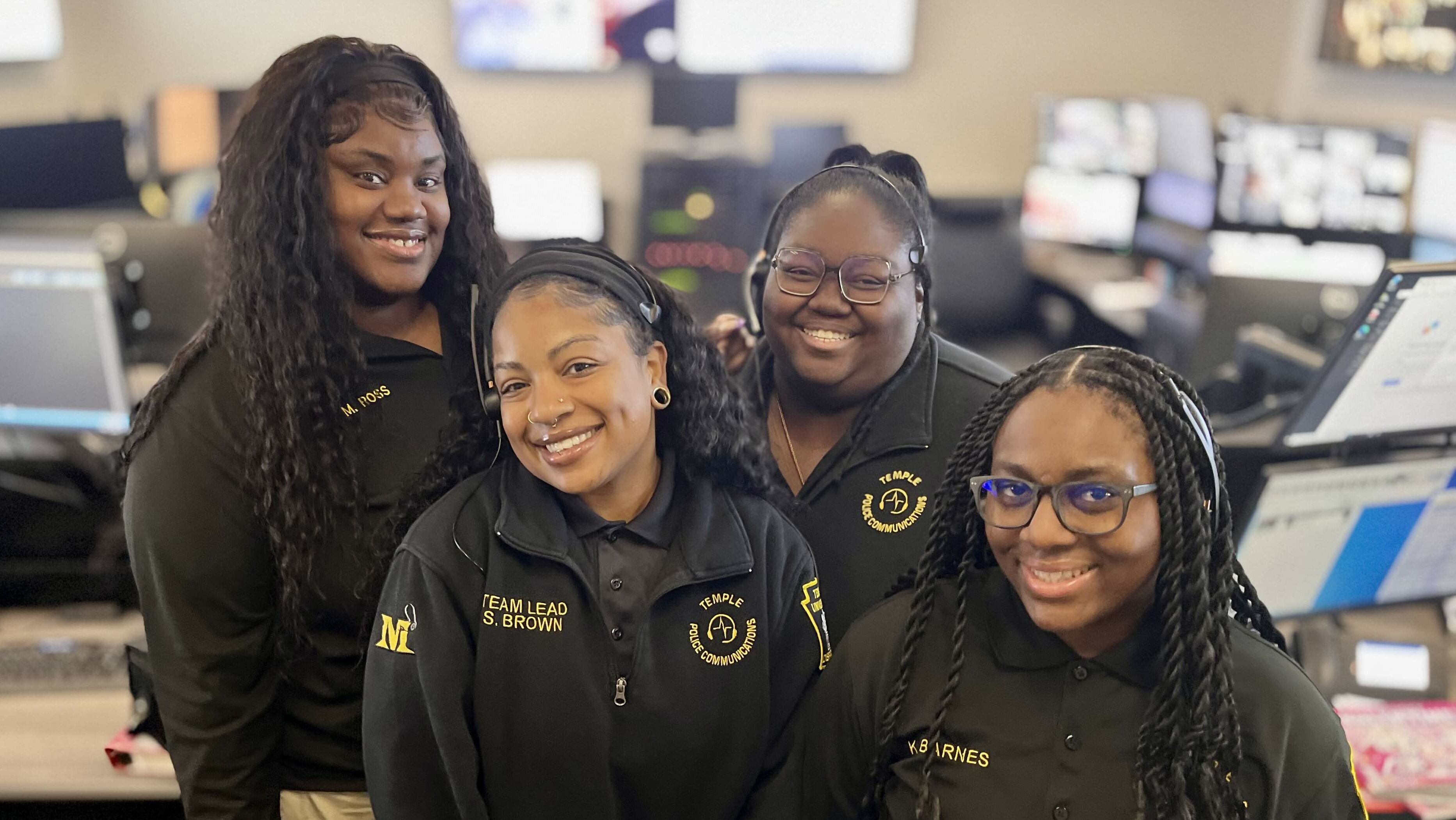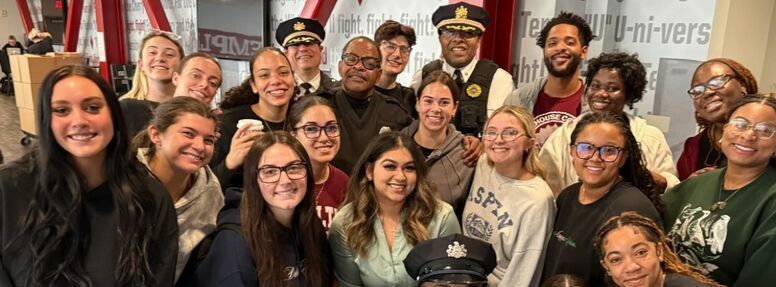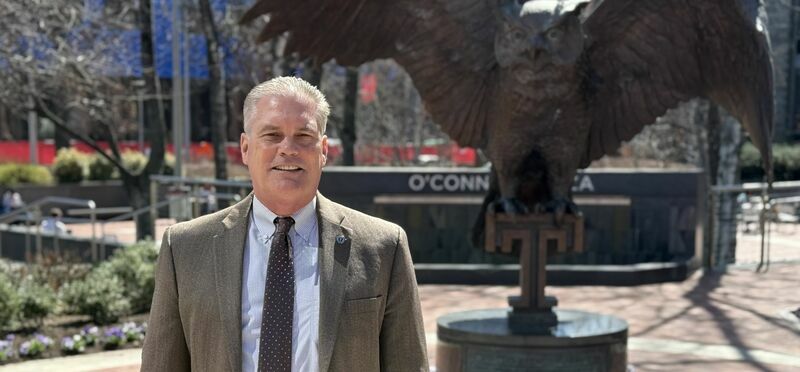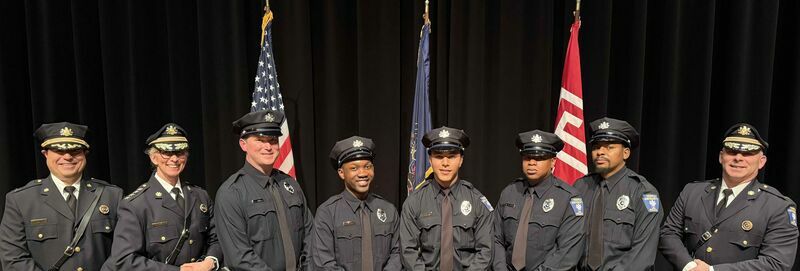Temple Public Safety unveils major upgrades to dispatch call center
Temple University’s Department of Public Safety put the finishing touches on its newly renovated Communication Center, which aims to add comfort and efficiency to the workplace.

It’s 11 p.m. on a recent Wednesday, and Amber Michael is just sitting down at her desk to start her shift as a dispatcher inside Temple’s Communication Center.
“We’re starting our shift while much of the Temple and North Philadelphia communities are going to bed. We’re always here. Temple’s Communication Center is staffed 24 hours a day, 365,” Michael said.
Within a few minutes, the phone rings.
“Temple Police, what’s your emergency?” she asks.
Someone called to request a walking escort, and after she finishes, she turns on the heat for below her desk, thanks to new personal comfort stations that have been installed at each desk.
“With this and many other upgrades made to the Communication Center, we feel appreciated and recognized,” Michael said.
As National Public Safety Telecommunicators Week kicked off on Monday, Temple University’s Department of Public Safety (TUDPS) put the finishing touches on its newly renovated Communications Center, said TUDPS Chief of Police and Vice President for Public Safety Jennifer Griffin.
“We are excited about the upgrades. This months long project is the culmination of our hardworking Temple Public Safety technology and information systems team, as well as multiple university partners," Griffin said.
There are several key upgrades that will improve the work environment for Temple dispatchers, Griffin said. For instance, each station now has more monitors. Plus, those monitors can all be electronically adjusted forward, back and even vertically. Each desk can also be adjusted to be a standing desk, which offers numerous health benefits. Personal comfort systems—cold air and heat—have been installed below and on top of each desk. The ceiling lighting is now LED, which is more energy efficient. Additionally, the carpet was replaced, the entire room repainted, and every wire is brand new.
The renovations are in addition to a new software system that was installed last year.
“Our dispatchers are the behind-the-scenes heroes of Temple Public Safety,” said Griffin. “They’re the first people someone might have contact with when they call for assistance. They are all exceptional and we’re proud of their work. And we are so appreciative of the team of Edda Lewis, Director of Information Systems; Joseph Spera, Director of Technology; and Michael Smith, our Deputy Police Chief who all worked tirelessly with our university partners and vendors to bring this upgraded space to fruition.”
Shyeema Brown, the telecommunications operations manager, said she also appreciates the personal comfort stations.
“I get cold easily, so I like to turn on the heat under my desk to warm me up,” Brown said. “All the upgrades are really awesome and everything works seamlessly.”
She also likes that she can raise her desk if she wants to stand while she works.
“Improvements like the standing desks and personal comfort stations really make our dispatch room unique. It shows that the university cares about us,” she said.
Still, she added that her primary job is to be there for when people call.
“We’re here to help and we want them to know that we’re always here for that,” Brown said.
In addition to answering calls and coordinating responses, dispatchers also monitor almost 1,500 surveillance cameras and the Code Blue emergency phones. Temple dispatchers also answer the phone when people call for a walking escort (215-777-9255), elevator emergency phones, panic alarms, intrusion alarms, fire alarms and law enforcement activity. On top of all that of that, dispatchers also oversee some of campus’ emergency technology, like the emergency siren, the TUalert notification system and the computer-aided dispatch system that interfaces with the Philadelphia Police Department’s 911 Emergency Dispatch Center.
“I’m proud to serve the Temple community because working at Philadelphia’s only public research university comes with a lot of pride,” Brown said. “It’s rewarding knowing that we’re making a difference—each of us in our individual work and with the university as a whole.”


